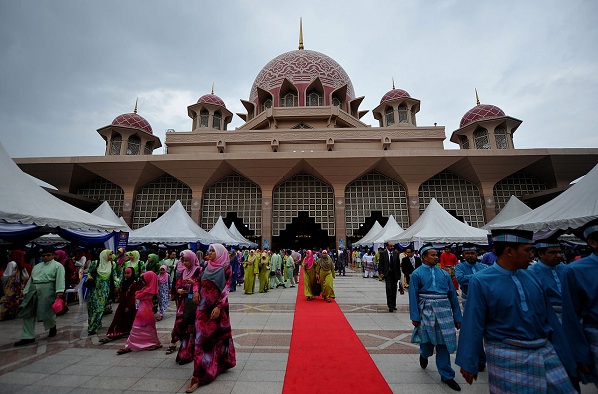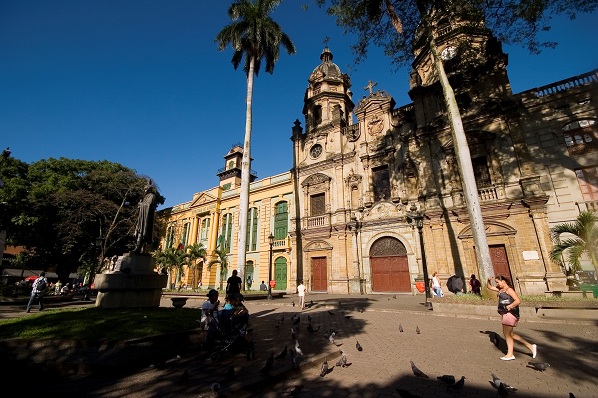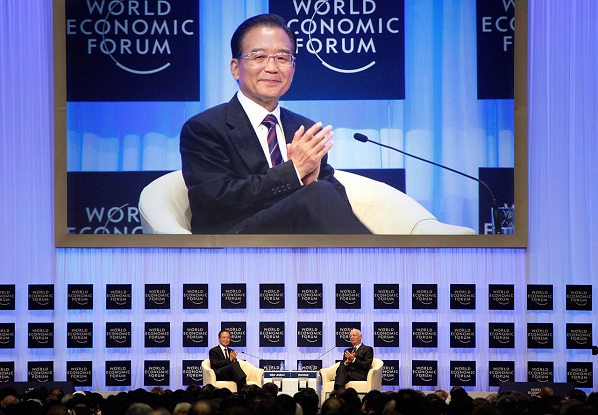Breaking Travel News investigates: World Economic Forum

The World Economic Forum - based in Geneva - engages the foremost political, business and other leaders of society to shape global, regional and industry agendas.
It was established in 1971 as a not-for-profit foundation and is an independent, impartial and not tied to any special interests.
The Forum strives in all its efforts to demonstrate entrepreneurship in the global public interest while upholding the highest standards of governance.
Moral and intellectual integrity is at the heart of everything it does.
The institution carefully blends and balances the best of many kinds of organisations, from both the public and private sectors, international organisations and academic institutions.
The Forum is best known for its annual winter meeting in Davos, a mountain resort in Graubünden, in the eastern Alps region of Switzerland.
The meeting brings together some 2,500 top business leaders, international political leaders, selected intellectuals, and journalists to discuss the most pressing issues facing the world.
However, the Forum also hosts a series of six to eight regional meetings each year in locations around the world.
Key events include the Annual Meeting of the New Champions, the Forum’s annual meeting on innovation, science and technology, is held in the People’s Republic of China.
The Summit on the Global Agenda, held in the United Arab Emirates, brings together the world’s leading knowledge community to share insights on the major challenges facing the world today.
In addition, The Industry Strategy Meeting brings together Industry Strategy Officers to shape industry agendas and explore how industries can shift from managing change to pioneering change.

Rwanda is known as the Land of a Thousand Hills
Rwanda
The next event is scheduled to take place in Kigali, Rwanda, in May.
Africa’s positive economic outlook is under pressure – mainly due to adverse changes in global economy – and is expected to remain just below five per cent in 2016.
As many countries in the region improve their investment climate and undertake macroeconomic policy reforms, foreign direct investment flows are expected to continue to grow, although at a slower pace.
Low global prices for major commodity exports, currency devaluations and debt sustainability considerations, as well as geo-security threats that have weakened growth in some countries underscore the urgent need for economic diversification for sustained inclusive growth.
In this context, Africa’s leaders need to pursue new approaches to ignite structural transformation, particularly in the face of rapid technological changes that have the potential to create new industries and reduce inequality.
Rwanda, the land of a thousand hills, has dramatically transformed since the 1994 genocide.
The country is emerging as a regional high-tech hub and boasts one of sub-Saharan Africa’s fastest GDP growth rates.
It is one of the continent’s most competitive economies and a top reformer in improving the business environment.
This remarkable progress showcases the country’s rapid evolution as a knowledge economy, powered by smart policies and investments.
Nonetheless, further reforms and alliances are called for to accelerate development by leveraging digital transformation to expand socio-economic opportunities.
Under the theme Connecting Africa’s Resources through Digital Transformation, the 26th World Economic Forum on Africa will convene regional and global leaders from business, government and civil society to discuss digital economy catalysts that can drive radical structural transformation, strengthen public-private collaboration on key global and regional challenges, and agree on strategic actions that can deliver shared prosperity across the continent.

Putra Mosque in Putrajaya is one of the most popular tourist attractions in Malaysia
Malaysia
Later in the year the World Economic Forum will celebrate 25 years of shaping the regional agenda in south-east Asia, meeting in Kuala Lumpur, Malaysia, from June 1st-2nd.
In that time, the region has achieved great progress, culminating in the recent launch of the ASEAN Economic Community (AEC).
The AEC demonstrates the region’s aspiration to remove barriers to the free flow of goods, services and people while improving sustainability, infrastructure and livelihoods.
But, while ASEAN has much to be proud of, it also faces many serious challenges.
The global economic context has become much tougher, from the slowing and rebalancing of China and the normalisation of monetary policy in the US, to the recessions in many emerging markets and the attendant slump in global trade.
As chair of ASEAN in 2015, Malaysia successfully ushered in the arrival of the AEC.
This year, the country plays host to the World Economic Forum on ASEAN.
In the Forum’s capacity as the International Organisation for Public-Private Cooperation, this meeting will be an ideal platform for senior decision-makers from a range of sectors to facilitate greater collaboration between industry, government and civil society, and to address regional challenges.

Colombia has one of thee fastest growing economies in Latin America
Colombia
From June 16th-17th, the World Economic Forum will visit Medellin in Colombia.
Latin America has enjoyed almost a decade of continual and more inclusive growth.
Now the region has arrived at a crossroads, both in the face of global developments and regional transformations.
On the one hand, growth rates are stalling, aggravated by external macroeconomic pressures, falling commodity prices and a low savings rate in various countries.
This may put social gains at risk and result in political discontent.
On the other hand, the region is entering a new phase of international trade and witnessing historic political milestones that will have regional and global impact.
With a bold leadership and partnership agenda, these transformations can be actively and strategically shaped.
Driven by economic diversification and innovation, built on stable and trusted public institutions and policies, Latin America can build on its strengths and resources.
Public-private collaboration will play a crucial role in mobilising those strengths and making big strides in areas such as infrastructure investment, productivity growth and human capital.
Addressing these challenges will allow the region to be a proactive agent in the Fourth Industrial Revolution.
The World Economic Forum on Latin America brings together leaders from all sectors, as well as academic thought leaders and millennials, to explore how a new prosperity agenda can be actively shaped.
At the same time, Colombia is close to a historic accord that promises opportunities for sustained peace, economic progress and social inclusion.
These inspiring achievements teach valuable lessons and are a reminder that socio-economic advances require constant attention as well as concerted and strategic action.

World Economic Forum has been visiting Tianjin since 2007
China
Finally, the World Economic Forum will host the foremost global gathering on science, technology and innovation, the Annual Meeting of the New Champions convenes in Tianjin, China, on June 26th-28th.
Established in 2007, the event is targeted at the next generation of fast-growing enterprises shaping the future of business and society, and leaders from major multinationals as well as government, media, academia and civil society.
Welcoming a community of more than 1,500 participants from 90 countries, the event is a true global experience addressing today’s unprecedented set of intertwined global challenges – economic, political, societal and environmental.
Taking place in conjunction with the Annual Meeting of the New Champions, the Industry Strategy Meeting 2016 will convene the Forum’s community of Industry Strategy Officers – senior executives of Forum Industry Partner companies – to collaborate on understanding and defining the major disruptions that are impacting the future of industry, highlight critical interface between sectors and explore how industries can shift from managing change to pioneering change in the context of the Fourth Industrial Revolution.
More Information
For more information on the World Economic Forum head over to the official website.

